Weirdly Normal?
Is police violence against protest aberrant or does it define us?
The other night as I cleared the day’s kitchen clutter after a day of doom-scrolling and news-channel surfing, topped off with an ill-advised rewatching of “Civil War,” I fell into a reverie about the LA protests, the dark prospects rising from Trump’s response, and the darker prospects Alex Garland’s nightmare imagined. Suddenly I was hit with a perverse sensation. After a decade of grappling every day with the unrelenting stream of “unprecedented,” “unthinkable,” “impossible” and “inconceivable” shocks against American values, norms, and laws, I found myself obsessing over cop-on-protestor violence. And I have to tell you that this was the most normal outrage I’d felt for years. Not that it felt good; just familiar. Old-fashioned all-American normie liberal rage. All the old, seething bile choked back during the George Floyd spring came bubbling back up, with echoes of the Ferguson protests in the summer of ’14 and all the precedents back to LA in ’92.
Don’t get me wrong. This is Trump’s party, so there’s plenty of “unprecedented” to go around, from kidnapping graduate students off the streets of Massachusetts to calling in the Marines to police the streets of LA. But there’s also so much in this week’s news and social media that will be familiar to any American past a certain age, echoes of earlier moments of unrest and police violence: the mainstream media parroting police and government descriptions of “violent unrest;” the speed with which newscasters and talking heads invoked “riot” and “violent protest” to describe what was going on; the inevitable arguments from would-be allies over just what the protesters should be doing and saying, and the frustrated responses from the protesters and their communities telling those would-be allies to try harder to listen and learn. The same old song from years gone by.
And always the twin refrains from “serious” analysts on TV and exasperated “reply guys” on social media:
“This isn’t America!” the outraged “moderates” proclaim.
“Wrong! This has Always been America!” comes the mic-drop response from the “realists.”
All of this points to a central problem for me teaching American history to undergraduates at one of America’s most diverse campuses—how to encourage the kind of inquiry that prompted my all-time favorite student evaluation comment: “Warren shows why America sucks and why it’s so great.” The challenge is how to shine a bright light on the nation’s aspirations, from “We hold these truths…” to “Yes, we can” while considering, unflinching, the shameful pronouncements of hate and racism, from “three-fifths of all other persons” to “Three generations…is enough” and on to “American Carnage.”
A refrain I hear a lot nowadays from my online teaching friends is “I like my subject to be relevant but I’m tired of being SO relevant!” Amen. And so, as I prep my lectures for the fall post-Reconstruction survey class, I’ll try harder to make clear the through-lines from New Orleans through River Rouge to Birmingham to Watts to yesterday. Holding up for analysis those times we’ve fallen into the same self-destructive patterns, exploring the reasons we keep stepping on the same rakes.
This is not beating the “America sucks” drum. No; the goal is to prime my students to have a bit more situational awareness as new forces try to hold back the arc of the moral universe. I want them prepared to say “I see this. I see where this wants to go.” I want them to ask “What can I do to move the day to a brighter purpose?”
I want them to develop a new reflex: when what’s wrong feels “normal,” that is the time to act!


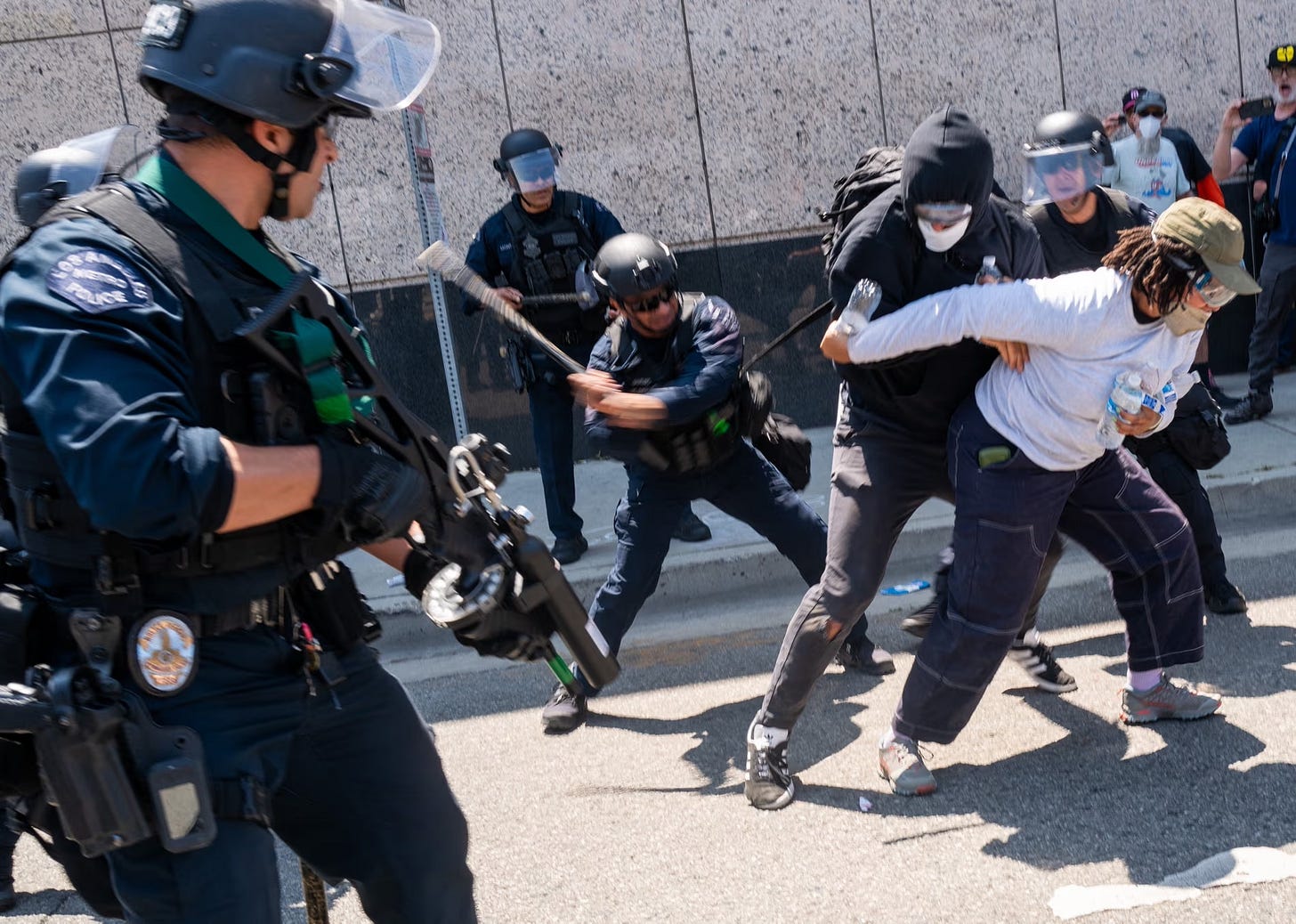
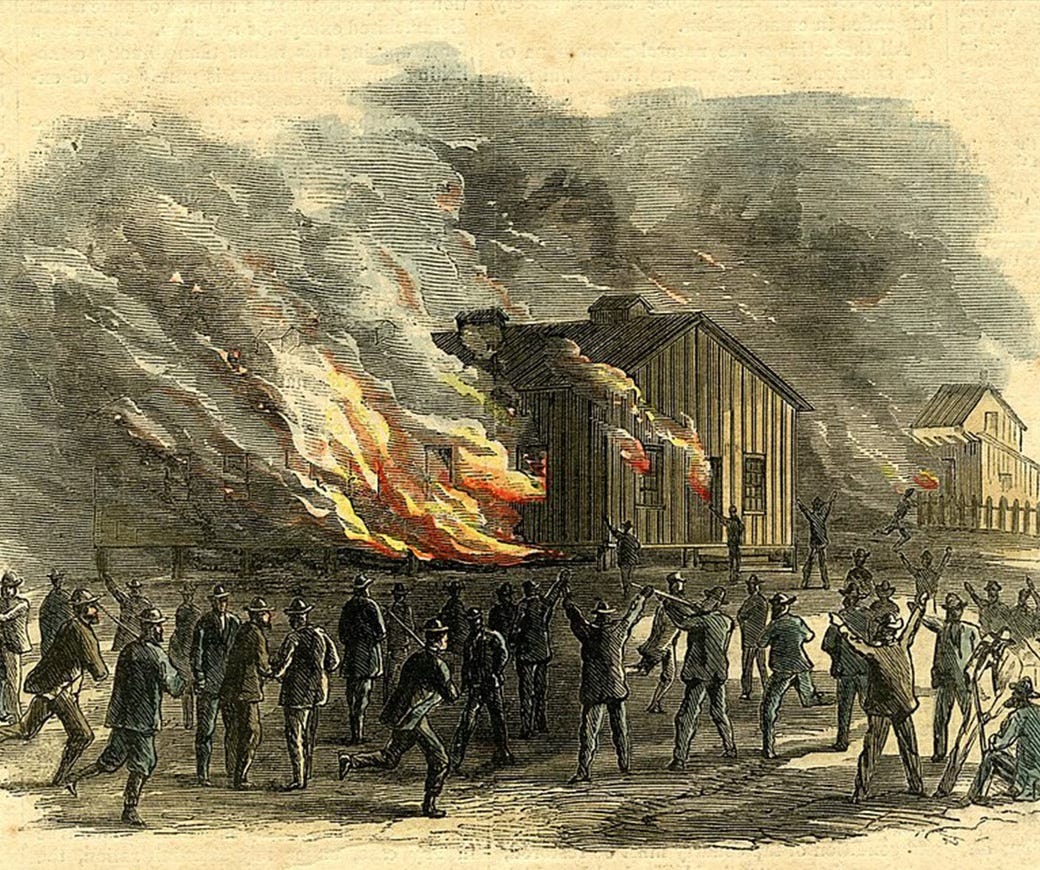
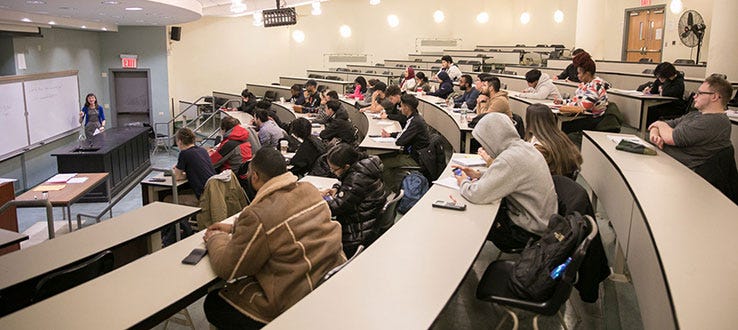
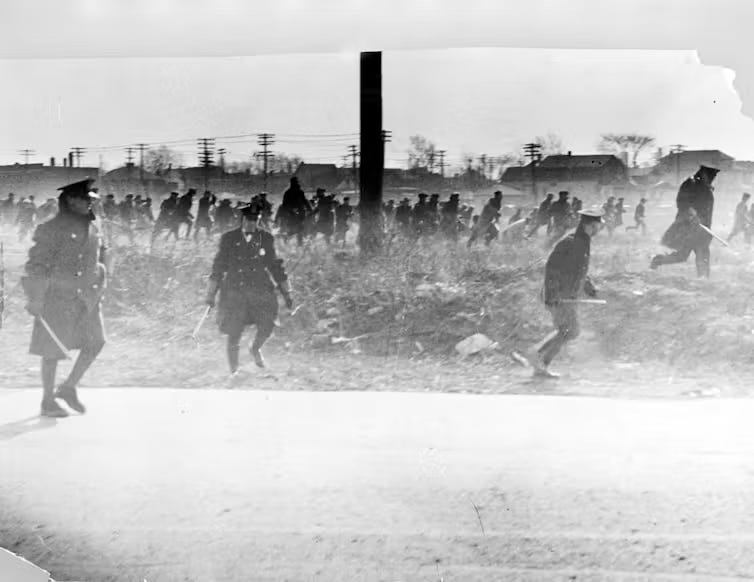
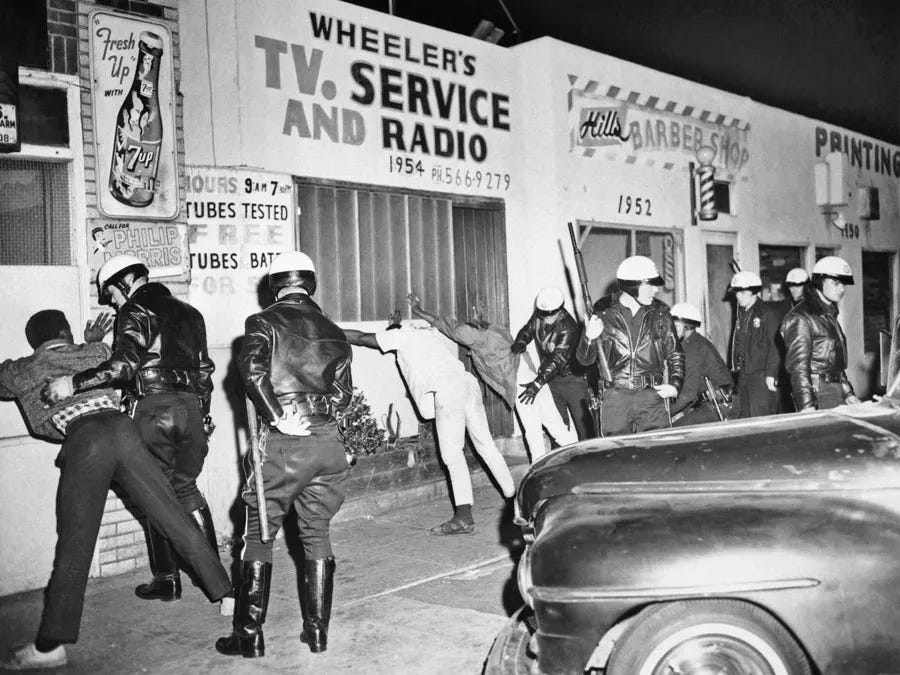
Ends too soon, keep going.
Wish it weren't true ... but when I type "police br", autocorrect finishes the phrase.